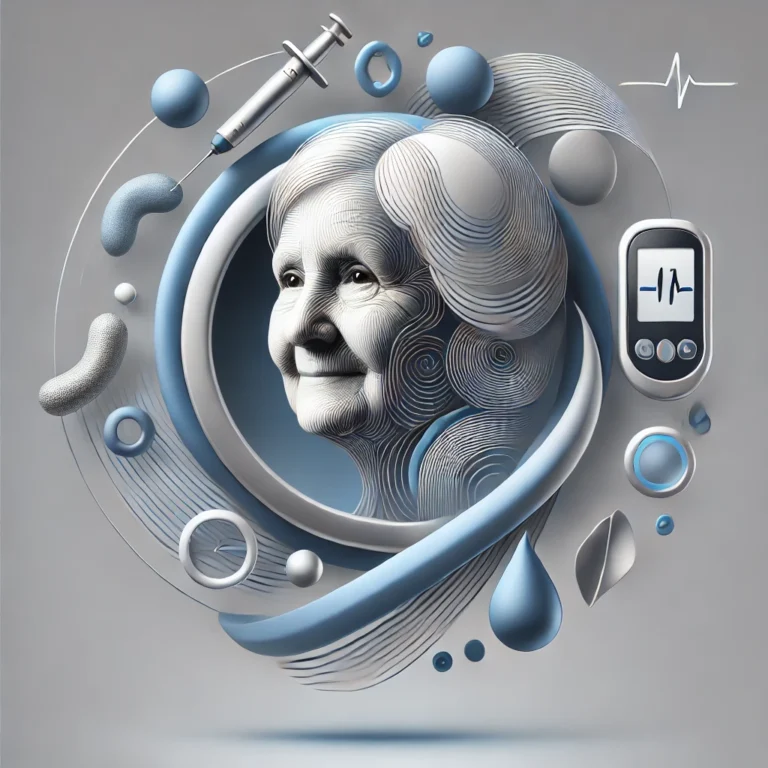*This post may contain affiliate links for which I earn commissions.*
I’d like to clarify what integrative medicine is and why it might matter to you. Think of integrative medicine as a care strategy that doesn’t just focus on eradicating diseases but emphasizes the full spectrum of your well-being. It’s a practice that combines the best of conventional Western medicine with other, often ancient, healing systems to treat the whole person: body, mind, and spirit. I want you to be able as a senior to thrive rather than survive. Unlike alternative medicine that’s used in place of conventional treatments, integrative medicine blends the two, harnessing their strengths in an effort to provide more comprehensive care. It’s a partnership between patient and practitioner in the healing process, heavily focused on natural and preventive approaches.
Table of contents
- Holistic Health is Becoming More talked about
- Historical Roots of Integrative Medicine
- The Five Pillars of Integrative Medicine
- Types of Therapies in Integrative Medicine
- Benefits of Integrative Medicine
- Scientific Evidence Behind Integrative Medicine
- Integrative Medicine in Clinical Settings
- The Future of Integrative Medicine
- Conclusion To Integrative Medicine
- Faq s For Integrative Medicine
Holistic Health is Becoming More talked about
You’ve probably noticed a growth in the discussion around holistic health. Integrative medicine is riding the crest of this wave, gaining traction as individuals seek more personalized and proactive healthcare. I believe the resilience of this approach lies in its attentiveness to all aspects of life that contribute to your health: physical, emotional, social, and spiritual.
Historical Roots of Integrative Medicine
I find it fascinating to look back and see where integrative medicine began. Its historical roots stretch far back into ancient healing practices, which have been the cornerstones of how we understand the human body and its capacity to heal. Integrative medicine is a rich tapestry through history, woven from the threads of various cultural traditions in medicine.
This timeline of understanding didn’t form overnight. I view it as a continuous merging of traditional and modern medical knowledge. From the herbal remedies of traditional Chinese medicine to the Ayurvedic techniques of ancient India, we have gleaned insights and practices that remain relevant today. These traditions have been studied, tested, and refined, forming the bedrock of integrative approaches that combine the best of old and new.
Certain figures stand out when I trace the lineage of this medical philosophy. Think of Hippocrates, who is often called the ‘Father of Medicine,’ and his insistence on considering lifestyle and environmental factors in health. Or Paracelsus, a Renaissance physician who championed the use of minerals and chemicals in medicine, presaging the pharmaceutical advances of modern times. Their legacies underscore the enduring relevance of considering the whole person in medical treatment.
The Five Pillars of Integrative Medicine

Integrative medicine isn’t simply a collection of health practices; it’s anchored in a set of fundamental principles that guide its approach. These can be thought of as the ‘Five Pillars’ – essential elements that define how it differs from traditional medicine and what makes it so distinctively patient-centered.
The first pillar emphasizes the health of the whole person. This isn’t just about treating the symptoms or the disease, but considering the full spectrum of a person’s being – physical, emotional, mental, social, and even spiritual aspects. Integrative medicine seeks to restore balance across these dimensions.
The partnership between patient and practitioner forms the second pillar. Here, the dynamic isn’t just about treating a patient; it’s about engaging with them. Healthcare providers become collaborators who empower individuals with knowledge and encourage active participation in the healing process.
Informed decision-making is the third pillar. It involves critically evaluating scientific evidence, weighing risks and benefits, and personal preferences. All treatment plans are approached thoughtfully, ensuring the patient’s values and needs are forefront.
Fourth, there’s a strong emphasis on natural and less invasive interventions when possible. The approach leans towards therapies that the body and mind inherently recognize, aiming to work with the body’s own healing mechanisms rather than against them.
Finally, the fifth pillar is about proactive health. Integrative medicine isn’t just about intervening when health issues arise, it’s equally invested in prevention. Promoting healthy lifestyles, nutrient-rich diets, regular physical activity, and stress management are all integral parts of care.
These five pillars support a healthcare philosophy where the goal is holistic well being. As we transition into the next section, we’ll explore the various types of therapies that embody these principles, demonstrating the practical applications of integrative medicine in real-world scenarios.
The treatments themselves do not ‘cure’ the condition, they simply restore the body’s self-healing ability.
Leon Chaitow
Types of Therapies in Integrative Medicine
Integrative medicine isn’t a one-size-fits-all approach. It encompasses a broad range of therapies, each with its unique contribution to healing and wellness. Let’s explore some of the modalities that fall under the integrative medicine umbrella.
Acupuncture is one such therapy, rooted in traditional Chinese medicine, that has gained widespread recognition. Its premise is that stimulating specific body points promotes healing and balances energy flows. The insertion of fine needles into the skin might sound daunting, but many patients find it surprisingly painless and effective for various conditions, including chronic pain and migraines.
Aside from acupuncture, therapeutic massage stands out as another healing technique with ancient origins. It’s prized for its ability to alleviate muscle tension, improve circulation, and promote relaxation. Therapeutic massage isn’t merely for relaxation, though; it’s increasingly used to address medical conditions, from sports injuries to fibromyalgia.
Nutritional counseling is a cornerstone of integrative medicine, emphasizing food’s role as medicine. A tailored diet can support overall health and help manage diseases like diabetes and heart disease. Instead of generic dietary guidelines, practitioners provide personalized nutritional plans designed to optimize health and prevent illness.
Mind-body practices, which include yoga and meditation, are grounded in the belief that mental states can influence physical health. These practices aim to enhance mindfulness, reduce stress, and improve mental equilibrium. Regular practice is linked to a range of benefits from better sleep to lowered anxiety levels.
The utilization of herbal remedies and supplements is widespread in integrative medicine. These natural substances are used to treat ailments, boost the immune system, and maintain health. However, it’s crucial for patients to discuss the use of these remedies with their healthcare provider, as they may interact with prescription medications.
Lastly, energy therapies like Reiki and Qigong are based on the concept of manipulating the body’s energy fields to promote healing. Although these practices are less understood from a Western scientific perspective, they offer a sense of peace and well-being for many and are subject to ongoing research.
In the next section, we’ll delve into the concrete benefits that these therapies can offer—laying out how integrative medicine not only addresses specific health issues but also fosters a sense of holistic well-being and preventive care.
Benefits of Integrative Medicine
Integrative medicine isn’t just another buzzword in the ever-evolving landscape of healthcare; it’s a thoughtful approach that addresses several facets of well-being. When I consider the benefits it offers, personalization stands out. Treatment plans are as unique as fingerprints, tweaked to suit each individual’s needs, history, and preferences.
For those grappling with chronic diseases, integrator medicine isn’t a silver bullet, but it’s certainly a salve. It complements traditional care, offering a broader array of tools to manage long-term health conditions. By harnessing practices like mindfulness, patients can unearth new ways to cope with pain and the psychological toll of chronic illness.
The mention of stress reduction might have your ears perking up, and rightly so. Integrative medicine excels at this, employing everything from meditation to therapeutic massages. These modalities can alleviate the weight of anxiety and depression, conditions that too often march alongside physical health issues.
But perhaps the most profound benefit is the pursuit of optimal health, rather than the mere absence of disease. This is prevention in action. It’s about adjusting lifestyles, encouraging nutritious diets, and nurturing the mind as much as the body before health concerns escalate into something more daunting.
Does this mean that integrative medicine is a panacea, a one-size-fits-all answer to health? It’s not that simple. Every approach has its limitations, and integrative medicine is no exception. However, the breadth of its toolkit allows for a more responsive and adaptive healthcare experience.
Scientific Evidence Behind Integrative Medicine
While the ideas underpinning integrative medicine may resonate on a personal level, robust scientific evidence is critical to its acceptance in the broader healthcare landscape. Scrutiny through rigorous research ensures that the therapies used are not only safe but effective. To shed depth on this topic, it is essential to focus on several key areas.
Firstly, the current body of research has a growing number of studies that support the efficacy of integrative therapies. Clinical trials focused on acupuncture, for instance, have shown promising results in the management of chronic pain. Similarly, mindfulness meditation is increasingly backed by evidence suggesting improvements in mental health conditions such as anxiety and depression.

Research, however, comes with its set of challenges. Standardized protocols can be difficult to design for therapies that are inherently personalized, like many integrative medicine practices. This makes replicating studies and achieving uniform results more complex compared to conventional pharmaceutical trials. Moreover, the source of funding for research can introduce biases, particularly when there’s potential for financial gain.
A new scientific truth does not triumph by convincing its opponents and
MAX PLANCK (1858–1947)⁸ Nobel Prize winner, quantum physicist
making them see the light, but rather because its opponents eventually die, and a new generation grows up that is familiar with it.
But the field is pushing forward, addressing these hurdles head-on. Researchers are developing innovative study designs that attempt to better capture the nuances of integrative medicine interventions. The future must see increased funding from unbiased sources to amplify the scope and scale of research.
Big pharma has huge pockets and it is intrinsically bound up in profit, the quote above exemplifies what will happen for most people around integrative medicine.
Integrative Medicine in Clinical Settings
The reach of integrative medicine now extends far beyond individual practitioners and into the mainstream of healthcare systems. Hospitals and clinics are increasingly recognizing the value of integrating complementary therapies with conventional treatments, creating a more comprehensive approach to patient care.
You might be surprised to learn that some of the leading medical institutions have developed dedicated integrative medicine centers. These hubs offer a range of services, from acupuncture and massage to nutrition counseling and stress management programs, all housed within the familiar walls of a hospital.
Consider the real-world impact of integrative medicine through compelling case studies. One area of note is cancer care, where patients often face an exhausting regimen of treatments. In these scenarios, integrative practices such as meditation and guided imagery have been shown to ease the side effects of chemotherapy and improve the overall quality of life for patients.
The inclusion of integrative medicine has, in some cases, also led to reduced hospital stays and lower healthcare costs, which is a significant win for both the healthcare systems and patients. However, the integration process hasn’t been seamless everywhere. Hurdles such as insufficient practitioner training, variable insurance coverage, and skepticism from traditional providers still exist.
Navigating the financial aspects, patients frequently question whether their insurance will cover the cost of integrative therapies. While there’s a growing trend for insurance plans to recognize the value of these treatments, coverage can be inconsistent. It’s crucial for patients to engage with their insurance providers to understand their policy’s details.
In the next section, I’ll shift gears a bit and bring you personal stories. The experiences of patients who have seen dramatic changes in their health and lives through integrative medicine are both uplifting and enlightening. Understanding their journeys offers a unique insight into the tangible benefits and occasional challenges faced when choosing this holistic approach to health.
The Future of Integrative Medicine
I’m confident that the field of integrative medicine is poised for substantial growth. As research expands and technology advances, these two fronts are set to propel integrative practices forward.
Education is becoming a critical cornerstone, with more medical schools offering courses in integrative medicine. This educational shift ensures new healthcare professionals are well-versed in a variety of healing practices, ready to meet patient demands for holistic care.
In the realm of certification, rigorous standards are emerging to validate the expertise of practitioners in integrative therapies. Such certifications will likely become more valuable as patients seek trustworthy sources of care.
Digital platforms and wearable tech make tracking health data easier, allowing for personalized medicine to reach new heights. Integrative medicine stands to benefit from this, as such data can inform a more tailored approach to wellness.
As the narrative of healthcare continues to evolve, I anticipate that integrative medicine will become increasingly woven into the fabric of conventional medical treatment. This seamless blend has the potential to produce superior patient outcomes and, ultimately, a stronger, more responsive healthcare system.
I encourage readers to watch this space with a critical yet open mind. We must support evidence-based integrative practices while remaining vigilant against unsupported claims. If done right, the fusion of traditional and modern medical knowledge has the potential to revolutionize our approach to health and healing.
Conclusion To Integrative Medicine
This holistic model not only aims to cure ailments but also emphasizes the prevention of disease through lifestyle changes and natural therapies. Patients benefit from personalized care plans that address their unique physical, emotional, and spiritual needs. The rise of integrative medicine reflects a growing recognition of the interconnectedness of body, mind, and spirit. As more people seek out these holistic practices, the medical community continues to evolve, embracing a broader spectrum of healing modalities. The integration of nutrition, exercise, stress management, and alternative therapies into conventional care is revolutionizing how we approach health. Ultimately, integrative medicine fosters a partnership between patient and practitioner, empowering individuals to take an active role in their health. This collaborative, patient-centered approach holds the potential to enhance overall well-being and improve quality of life. As we continue to explore and expand integrative medicine, we pave the way for a healthier, more balanced future.






